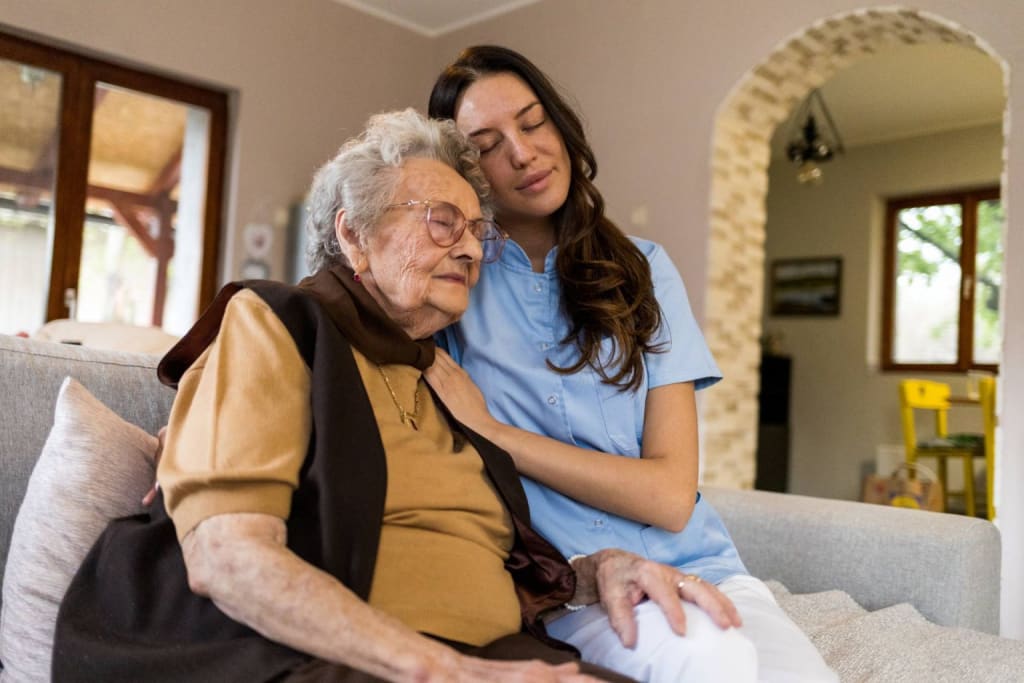Content warning
This story may contain sensitive material or discuss topics that some readers may find distressing. Reader discretion is advised. The views and opinions expressed in this story are those of the author and do not necessarily reflect the official policy or position of Vocal.
Dementia Home Care: Personalized Strategies for Comfort and Care
"Personalized Approaches for Effective Dementia Care"

As dementia progresses, the challenges it brings can seem overwhelming, not just for those diagnosed but also for their caregivers. However, with personalized strategies, dementia home care can be effective, compassionate, and tailored to meet individual needs. This blog explores practical approaches to enhance comfort and care for your loved one in a home setting.
Understanding Dementia Home Care
Dementia is an umbrella term for a range of cognitive impairments, including Alzheimer's disease. These conditions affect memory, thinking, and behavior, requiring specialized care. Dementia home care focuses on providing support in the familiar environment of the home, which can significantly benefit those with dementia by reducing anxiety and confusion.
Personalized Strategies for Effective Dementia Home Care
1. Create a Safe Environment: Safety is paramount in dementia home care. As cognitive abilities decline, the risk of accidents increases. Here are some tips to create a safer home:
- Remove Hazards: Eliminate tripping hazards like loose rugs and ensure that walkways are clear.
- Install Safety Devices: Use grab bars in bathrooms, add locks to potentially dangerous areas (e.g., the kitchen), and install night lights throughout the house.
- Modify for Accessibility: Consider adjustments like stair lifts or ramps to accommodate mobility changes.
2. Establish Routines: Consistency is key in dementia home care. A structured daily routine can provide a sense of stability and predictability for your loved one.
- Set Regular Schedules: Plan meals, medications, and activities at the same times each day.
- Simplify Tasks: Break down daily activities into simple, manageable steps.
- Encourage Participation: Involve your loved one in daily tasks as much as possible to promote a sense of purpose and independence.
3. Engage in Cognitive and Physical Activities: Keeping the mind and body active is crucial in dementia home care. Tailor activities to your loved one's abilities and interests.
- Cognitive Activities: Puzzles, memory games, and reading can help maintain cognitive function.
- Physical Activities: Gentle exercises, like walking or chair yoga, can improve physical health and mood.
- Social Interaction: Encourage social activities with family, friends, or support groups to reduce feelings of isolation.
4. Focus on Nutrition and Hydration: Proper nutrition and hydration play a vital role in overall health and well-being.
- Balanced Diet: Provide a balanced diet rich in fruits, vegetables, whole grains, and lean proteins.
- Hydration: Ensure your loved one drinks plenty of fluids throughout the day.
- Special Dietary Needs: Adjust meals for any dietary restrictions or swallowing difficulties.
5. Manage Behavioral Changes: Behavioral changes are common in dementia, and managing them requires patience and understanding.
- Stay Calm: Approach challenging behaviors with a calm and reassuring demeanor.
- Redirect and Distract: Gently redirect attention to another activity if your loved one becomes agitated or distressed.
- Identify Triggers: Recognize and minimize triggers that may cause behavioral changes, such as loud noises or unfamiliar environments.
6. Seek Support and Respite: Caring for someone with dementia can be physically and emotionally demanding. It's important to seek support and take breaks when needed.
- Support Groups: Join local or online support groups to connect with others in similar situations.
- Respite Care: Arrange for respite care services to give yourself a break and ensure your loved one is well cared for.
- Professional Help: Don't hesitate to seek professional help if you need it. Home health aides, nurses, and therapists can provide additional support and expertise.
Conclusion
Dementia home care requires a personalized approach to ensure comfort and quality of life for your loved one. By creating a safe environment, establishing routines, engaging in meaningful activities, focusing on nutrition, managing behavioral changes, and seeking support, you can provide compassionate and effective care at home. Remember, you are not alone on this journey, and resources are available to help you every step of the way.
About the Creator
Hearts for Dementia
Hearts For Dementia provides exceptional dementia care through a comprehensive Integrated Care Model. Our holistic approach enriches lives, tailored to the unique needs of those with dementia and their caregivers.
Enjoyed the story? Support the Creator.
Subscribe for free to receive all their stories in your feed. You could also pledge your support or give them a one-off tip, letting them know you appreciate their work.






Comments
There are no comments for this story
Be the first to respond and start the conversation.